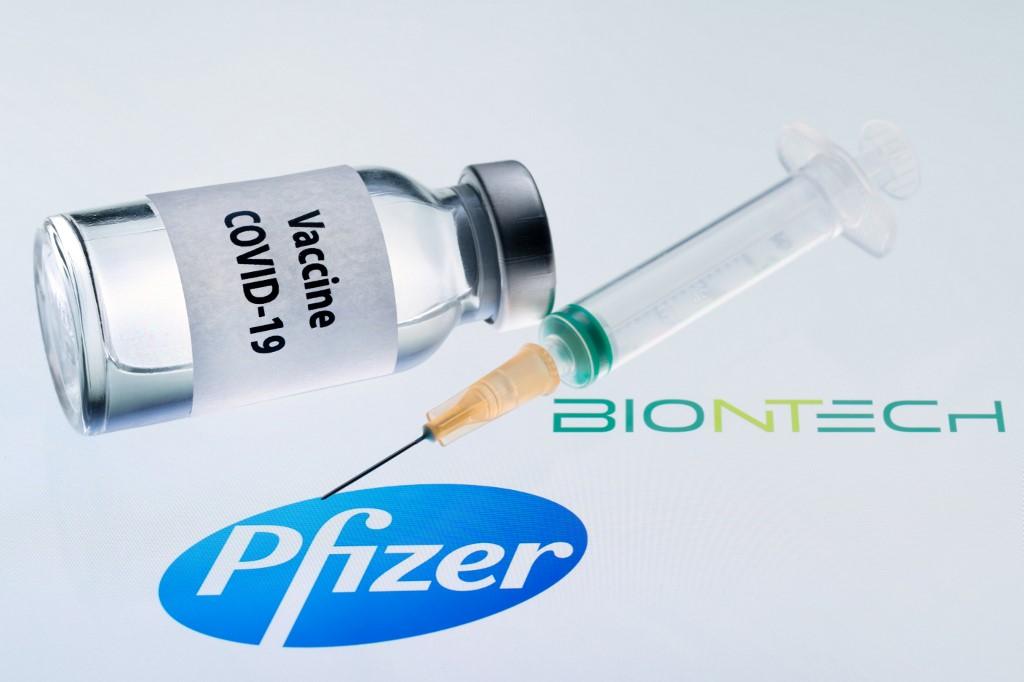The US Food and Drug Administration (FDA) have given the emergency approval to a coronavirus vaccine developed by Pfizer and BioNTech, the first drug to prevent the Covid-19 pandemic is approved in the US for its citizens. The approval marks a turning point and can prove to be the cornerstone in a pandemic that has claimed more than 294,000 American lives and 1.5 million lives globally.
The vaccine was set to roll out of Pfizer’s principal manufacturing facilities in Michigan within hours and could be administered to the first, highest-priority recipients by the end of Monday. The US follows other countries, including the UK, Canada and Mexico, which have also authorized the Pfizer/BioNTech vaccine for broader public use.
A second vaccine, developed by Moderna and the National Institutes of Health, is also seeking the emergency approval in the US for the affected citizens. Like the Pfizer vaccine it requires a second round of injections which result in the delays.
Pfizer; the vaccine producing company plans to have 6.4 million doses ready for the US citizens in its first rollout round in late December. Because two injections are required per person and that is enough for three million people, out of a total US population of the 330 million.
The vaccine, which offers up to 95% protection against Covid-19, was deemed safe and effective by the FDA. President Donald Trump said the first vaccinations will take place “in less than 24 hours”.
Before the announcement on Friday night, the FDA had come under intense pressure from the Trump administration to approve the vaccine’s use. The head of the agency, Stephen Hahn, was told to approve it for emergency use by Friday or quit, US media reported, although he called this “untrue”.
On Friday, President Trump sent out an angry tweet calling the FDA a “big, old, slow turtle”, adding, “Get the dam vaccines out NOW, Dr Hahn. Stop playing games and start saving lives.”
The FDA commissioner, Dr Stephen Hahn, confirmed the news in a statement on Friday night. Dr Stephen Hahn said, “The FDA’s authorization for emergency use of the first Covid-19 vaccine is a significant milestone in battling this devastating pandemic that has affected so many families in the United States and around the world.”
He said the authorization came after “an open and transparent review process” that ensured the vaccine met the “FDA’s rigorous, scientific standards for safety, effectiveness, and manufacturing quality”.
Health and Human Services Secretary also told the reporters that earlier on Friday that his department would work with Pfizer to get the mass vaccination program started by Monday or Tuesday. The Pfizer vaccine has already received regulatory approval in the UK, Canada, Bahrain and Saudi Arabia. Like those countries, the US will give its first doses of the vaccine to the elderly, health workers and emergency crew.
Deaths due to COVID-19 have been rising sharply since November in the US. On Wednesday, the country recorded more than 3,000 deaths; the highest total in a single day anywhere in the world. While not an FDA approval, today’s emergency use authorization of the Pfizer-BioNTech Covid-19 Vaccine holds the promise to alter the course of this pandemic in the United States
Amid the reports of White House pressure, President-elect Joe Biden said he wanted to make it clear to the public that they should have confidence in the vaccine, adding that, “There is no political influence.”
The Pfizer/BioNTech vaccine was the first coronavirus jab to show promising results in the latter stages of its testing process. It is a new type called an mRNA vaccine that uses a tiny fragment of genetic code from the pandemic virus to teach the body how to fight Covid-19 and build immunity.
FDA said that, “The vaccine contains a small piece of the Covid-19 virus’s mRNA that instructs cells in the body to make the virus’s distinctive ‘spike’ protein.”
When a person receives this vaccine, their body produces copies of the spike protein, which does not cause disease, but triggers the immune system to learn to react defensively, producing an immune response against the Covid-19. The vaccine is given as two injections, 21 days apart, with the second dose being a booster. Immunity begins to kick in after the first dose but reaches its full effect seven days after the second dose.
The FDA authorized the vaccine, called BNT162b2, after a trial involving more than 43,000 people found it was effective at preventing the coronavirus 95% of the time. The vaccine uses innovative messenger RNA technology to introduce the body to the spike protein on the surface of the coronavirus.
President Donald Trump said in a recorded video posted on the micro blogging website that, “We have made sure that this vaccine will be free, for all Americans.” He further added that, “we have already begun shipping the vaccine to every state and zip code in the country. The first vaccine will be administered in less than 24 hours.”
Federal officials at the Centers for Disease Control and Prevention (CDC) say the nation’s 21 million healthcare workers should be prioritized first, as well the three million elderly Americans living in long-term care homes.
But there are fewer consensuses on how states should distribute it to other groups. The nation has approximately up to 87 million essential workers in the circuit. These essential workers are expected to be next in line for the jab, but it will be up to states to decide which industries to prioritize.
President Trump while breaking the news on twitter said that, “vaccines will vanquish the virus and return life back to normal”. But officials say vaccinations for groups that are not at a high risk are expected to take place in the spring of 2021.
The Trump administration issue another indication of support for the Moderna vaccine alongside Pfizer on Friday evening, when it announced the government had purchased an additional 100m doses. That brings the total doses purchased to 200m, and will allow for “continuous delivery” of vaccine through June 2021.

The author is doing M. Phil in Public Policy and Governance. He is working as a freelancer. Previously worked with HubPages and Washington Post.
